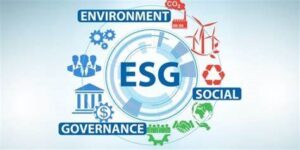
Earlier this week, New Jersey lawmakers passed SB 3110, a bill (the “Bill”) that would require Landlords and Seller of commercial and residential Real Estate to warn prospective tenants and buyers about previous flooding on various types of properties.
SB 3110 has been sent to NJ Governor Murphy for review and execution and will need implementing regulations from the New Jersey Department of Community Affairs (NJDCA) that are anticipated within 90 days of passage of the Bill.
SB 3110 requires that both Sellers and Landlords disclose whether a property is located in a 100-year floodplain or 500-year floodplain, as determined by the Federal Emergency Management Agency (FEMA).
The Bill mandates that NJ Department of Environmental Protection (NJDEP) create a user-friendly website where landlords, owners, tenants and buyers can check whether a property is in a flood zone or at risk of flooding in the future.
NJDCA will also be charged with developing a standard notice for landlords and owners to fill out to disclose whether a flood risks exist.
Note, that, under SB 3110, a tenant who experiences “substantial flood damage” but whom wasn’t properly notified by a landlord of the risk of such a flood, could terminate a lease and sue to recover damages,. “Substantial Flood Damage” is defined as damages of at least 5 months rent worth of damage.
Some of the questions the disclosure form will likely address include:
- Is any or all of the property located wholly or partially in the Special Flood Hazard Area (“100-year floodplain”) according to FEMA’s current flood insurance rate maps for your area?
- Is any or all of the property located wholly or partially in a Moderate Risk Flood Hazard Area (“500-year floodplain”) according to FEMA’s current flood insurance rate maps for your area?
- Is the property subject to any requirement under federal law to obtain and maintain flood insurance on the property?
- Have you ever received assistance, or are you aware of any previous owners receiving assistance, from FEMA, the U.S. Small Business Administration, or any other federal disaster flood assistance for flood damage to the property?
- Is there flood insurance on the property?
- Is there a FEMA elevation certificate available for the property? If so, the elevation certificate must be shared with the buyer.
- Have you ever filed a claim for flood damage to the property with any insurance provider, including the National Flood Insurance Program? If the claim was approved, what was the amount received?
- Is any or all of the property located in a designated wetland?
- Has the property experienced any flood damage, water seepage, or pooled water due to a natural flood event, such as heavy rainfall, costal storm surge, tidal inundation, or river overflow? If so, how many times?
Some of these questions are contained within the Bill and others are likely the subject of DCA’s form creation to address the disclosure obligation if SB 3110 is signed into law.
Parting Thoughts – Given New Jersey’s past history in the last decade with hurricanes and increasing flooding and given that New Jersey has been assigned a grade of an F by the NRDC in connection with its flood disclosure policies, it should come as no real surprise that the legislature is moving to attempt to address this type of tenant and buyer of real property risk and provide for a more informed purchase/leasing process.
Duane Morris has an active ESG and Sustainability Team to help organizations and individuals plan, respond to, and execute on your Sustainability and ESG questions, planning and initiatives. We would be happy to discussion your proposed project and how this DOE funding prize might apply to you. For more information or if you have any questions about this post, please contact Brad A. Molotsky, Alice Shanahan, Jeff Hamera, Nanette Heide, Jolie-Anne Ansley, Robert Montejo, Seth Cooley or David Amerikaner or the attorney in the firm with whom you in regular contact or the attorney in the firm with whom you are regularly in contact.
